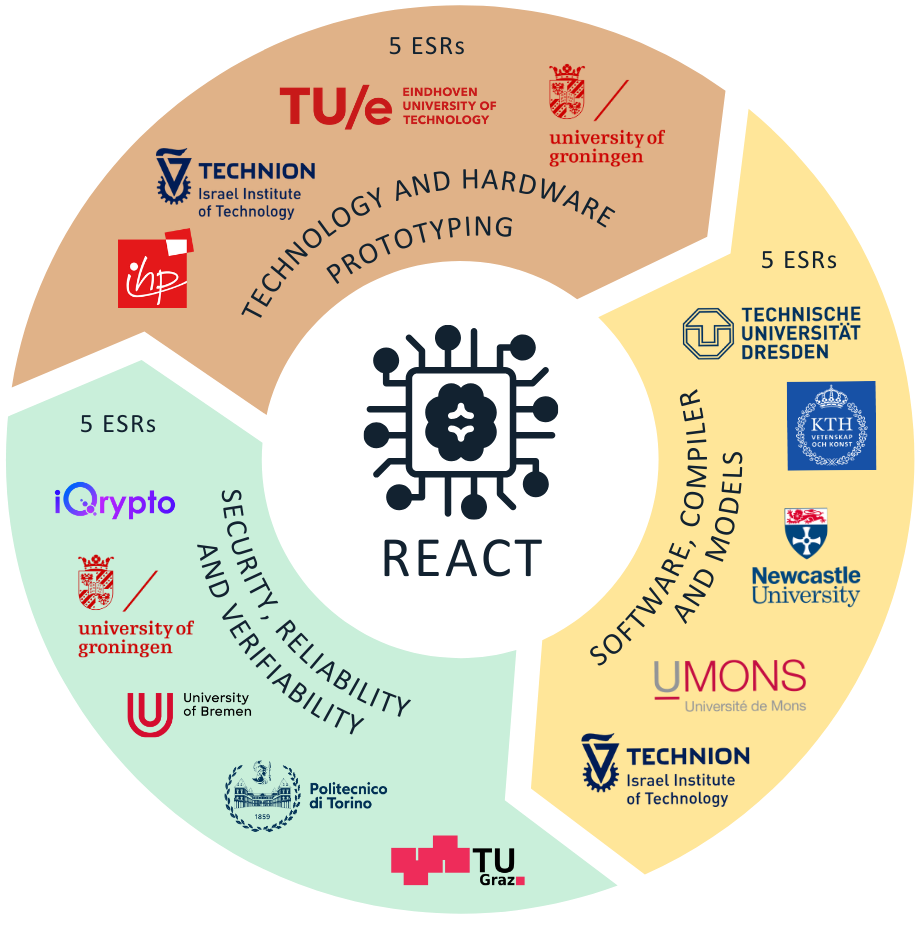Farhad Merchant Secures EU Grant to Train the Brains Behind Smarter, Greener Computers
What if computers could think more like brains — learning, adapting, and using far less energy? That’s the vision behind REACT, a new European research network led by Farhad Merchant of CogniGron. With support from the highly competitive Marie Skłodowska-Curie Actions (MSCA) Doctoral Network, the project will train 15 PhD researchers to pioneer self-aware neuromorphic platforms — a field that promises to transform the way machines compute, with efficiency, security, and reliability at the core.
The REACT project brings together 15 early-stage researchers (PhDs) across 13 leading institutions in Europe and Israel, including the University of Groningen, TU Eindhoven, KTH Sweden, Technion – Israel Institute of Technology, and TU Dresden. These researchers will work at the forefront of developing neuromorphic platforms that are energy-efficient, reliable, and secure — all crucial qualities for the future of sustainable, AI-driven computing.
“The training network is unique,” says Farhad. “Each PhD will be co-supervised and trained at an academic and industrial partner institution, giving them a broad, application-driven perspective. This is perfectly in line with CogniGron’s mission to rethink computing from the ground up.”

REACT's strength lies in its collaborative structure and interdisciplinary approach, combining academic excellence with hands-on industrial experience. We are excited to work together with our associated partners, including Innatera, Ericsson, and Morphing Machines. They will host PhD researchers for extended secondments, offering exposure to real-world challenges.
This grant not only strengthens CogniGron’s role as a hub for next-generation computing research, but also highlights Europe’s strategic investment in developing talent that can tackle the pressing energy demands of our digital future.
Farhad is especially excited about the broader outcome: “Beyond training highly skilled researchers, REACT will help accelerate the development of neuromorphic systems that can adapt, learn, and operate efficiently — just like our brains. That’s the kind of breakthrough we need to make computing more sustainable and intelligent.”
More news
-
15 September 2025
Successful visit to the UG by Rector of Institut Teknologi Bandung
